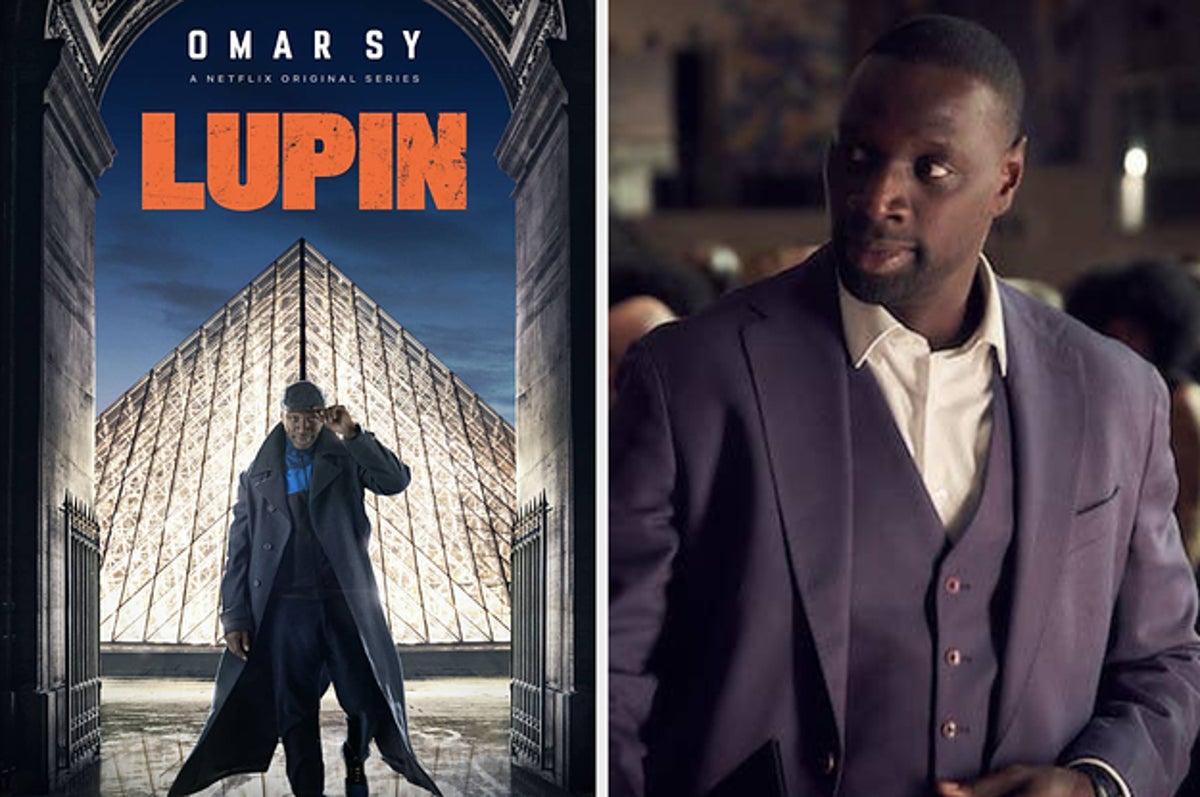. . . . Lupin (2020) season 1. Netflix-France. Master thief, master of disguise, from the 1900’s - 1920's classic French series.
Contemporary Lupin is a son of a Senegalese immigrant. A poor person, a person so socially inferior in every way, a person so much higher in status and economic condition. This is where the story begins. "... how? I was always so good to him . . ." Until you weren't. But that shouldn't count, should it, in the balance of the times I was good! That comes quite early in watching, and that is when the viewer knows, "This is going to be very good."
Lupin is the perfect watch for the January of These 2021 Times, as our breath continues bated, exhaling, inhaling, between a violent insurrection aimed at bringing down the country's political institutions, and the longed for inauguration of a New Day.
I do have a sort of criticism though -- I wouldn't wouldn't ? Like many of the elegant self-conscious series these days, Lupin too plays silly buggers with the timeline. Here though, I think the purpose of this choice was for narrative clarity and establishment of characters and relationships, plus contributing suspense. Gotta say how admirably, efficient and succinctly it was done, giving the audience the information of how Lupin and his friend with the jewelry-antique shop, who is a master forger, etc., hooked up.
Beyond that, one suspects this timeline choice had a further objective, to equip thematic content. The strongest theme emerges via the nested narratives of father-son of past, into that of father (protagonist)-son of the present, both sets being taught how to be successful from the fictional Lupin, and in the current case, the current father revenging his own father and creating justice where it previously hadn't existed. It is here that the thematic concept of Lupin-dead father-protagonist father as 'gentlemen / knights vs. the barbarians is the strongest.
Then there is the nested theme -- can hardly get more contemporary than this -- of how pop culture pervades the daily life of 'ordinary' people. For the positive side of this, the fictional 1920's Lupin is the model for a man that Diope's father and his sone adhere to, that of the gentleman's behavior -- courteous always to women, kind to the less fortunate, and righting injustice. The negative is when identification with a fictional figure so permeates an 'ordinary', non super, but real human being, the human being can get to a point where s/he can no longer tell the difference between that fiction and her/himself. There haven't been enough episodes to see where this will go -- the direction of Amazon Original's The Boys, or just drop as too distracting for the audience's eye. At one point an investigator announced, "He thinks he is Lupin!" I am not sure myself this is the case, but with only 5 episodes in this series's first season, one cannot tell.
However, again, this being a French series, there are books everywhere, and people are reading the books-- and they are talking about the books. In this case it's mostly editions, valuable and not, of author Maurice LeBlanc's fictional Lupin of the 1900's and '20s. Whenever I encounter this common trope of French television, the characters discussing books, I am delighted.
In the end, this is a television series, So, much like Killing Eve, neither the philosophy nor the capacity of the showrunners have the scope necessary to explore such matters in depth. Though, like Killing Eve, Lupin's glossy surface charm is a positive, as the protagonist is modeled on a pop culture, bigger than life figure, (like a superhero), a master of disguise and illusion. "Fool the audience" is the mantra, which means first, fooling the the police, and whomever else, as auctioneers and nabobs of the Louvre.
We are given much to make Assane Diop sympathetic, and smplr to show those he’s going after are cruel, evil garbage. Mr Big, who set off the trajectory of vengeance, sold arms to terrorists to blow up a French embassy – and he’s French. and he's doing it only to stay rich, not even for an ideology, toxic or otherwise. Can’t get more scumbag than that, and ya these are the people running the world everywhere.
Lupin somewhat reminds me of Orphan Black, in the sense the actor puts on a variety of characters. But Maslany’s job was much more difficult and thus her achievement is more so, as she wasn’t disguising a protagonist, she was being different people. But this actor is very good too, and compels our eyes to watch him as much as Maslany does.
So disappointing there were only 5 episodes, though more are coming. So is an inauguration of a new POTUS.


/0/1787/coverorgin.jpg)

No comments:
Post a Comment